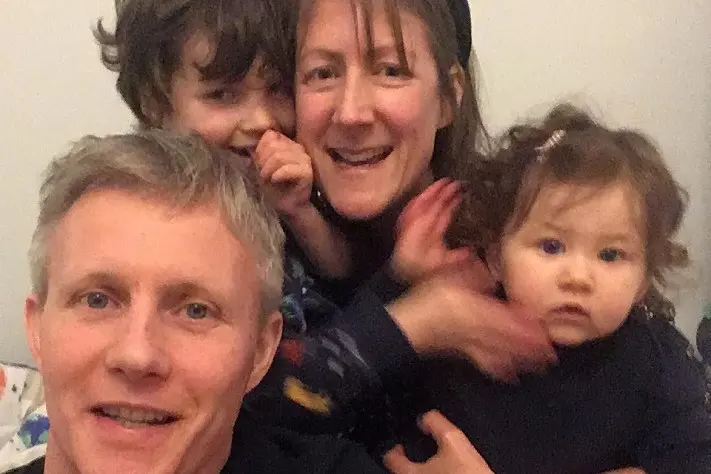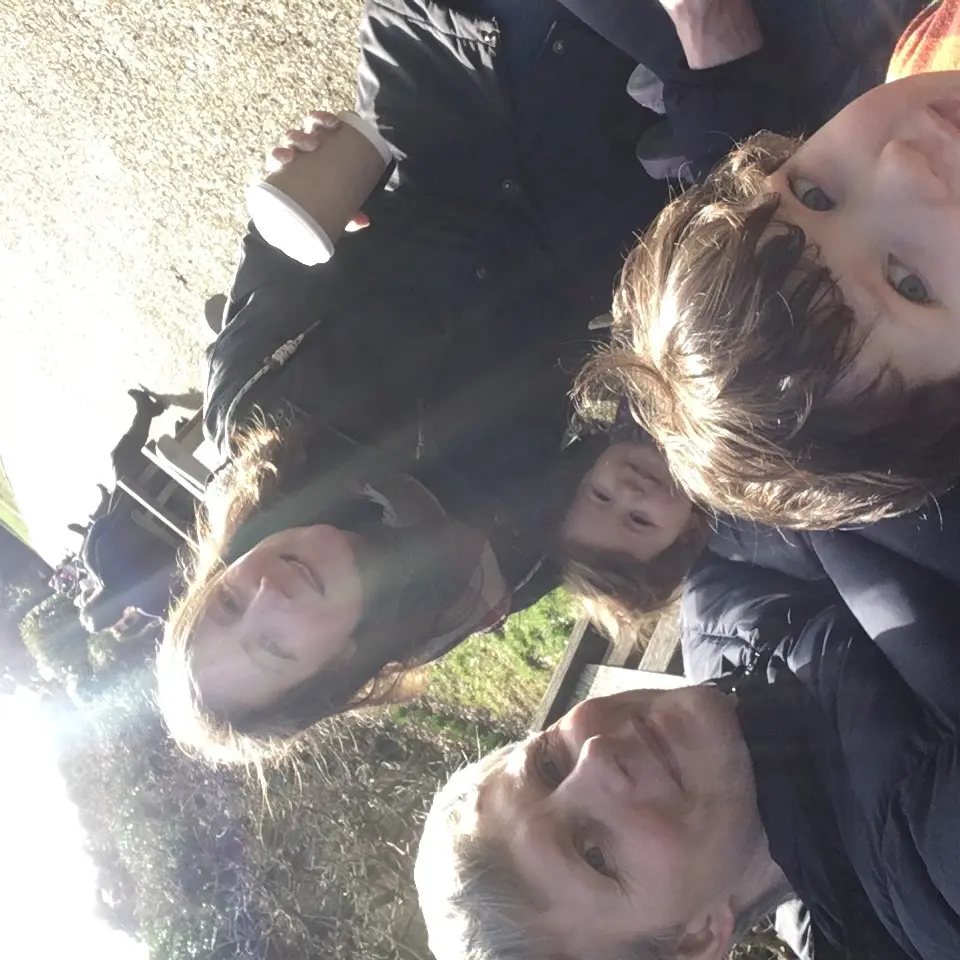26th February 2021
In support of #RareDiseaseDay, read Voices blog by Valerie Horwood who shares her story on her very rare condition called Pregnancy Associated Osteoporosis (PAO).
Rare Disease Day 2021 takes place on Sunday 28 February and is an opportunity to raise awareness of rare conditions and improve access to care, treatment, information and support.

Valerie Horwood and her family
In July 2018, nearly two years after the birth of my first child, Douglas, I was diagnosed with a very rare condition called Pregnancy Associated Osteoporosis (PAO). I hope that by telling my story I can raise awareness of this condition and encourage health visitors to wonder, “Could it be PAO?”
Douglas was born in October 2016 and about 6 weeks later, I fractured two vertebrae. I was rendered immobile and in crippling pain. I couldn’t bend over the crib, I couldn’t pick him up, I couldn’t change him and I couldn’t get the buggy in and out of our first-floor London flat. I couldn’t look after my newborn. I also couldn’t believe that this was what becoming a mum was all about and that no one had told me how physically debilitating it was. I felt like a terrible mum because I wasn’t able to properly look after my child and because, unlike every other mum on the planet, I wasn’t able to endure this with a smile on my face. My husband started a new job shortly after Douglas was born and was out of the house about 13 hours a day. So eventually, about 8 weeks postnatal, my parents, who live in the north west of England, took me back to their home. I stayed for a month.
As is often the case before PAO is diagnosed, everyone around me put my symptoms down to postnatal depression. My health visitor was incredibly supportive and, given how many tears I cried in front of her, it’s not surprising she also thought I had PND. She arranged counselling for me, which started when Douglas was about 5 months old.
About 3 months after Douglas was born and the pain was slightly better, I found the strength to realise that something really wasn’t right and I went to see my GP. After a long journey of tests and consultants, I was told in July 2018 that I had fractured two vertebrae. It was a bittersweet moment. For the first time I realised that I hadn’t made up my pain and that what I had experienced was not normal. Yet at the same time I was being diagnosed with osteoporosis at the age of 40, and I felt let down that it had taken so long to get a diagnosis.
Unlike many other women I know with PAO (who have fractured 8, 12, 14 vertebrae), after about 2 years I felt almost completely normal and completed Couch to 5k. With no medical interventions I made great gains in my bone density and pain levels. Following various conversations with specialists, I was able to go on and have a second child. Chloe was born in November 2019. During my pregnancy I was under an obstetrician and I was monitored very closely. However, I don’t think anyone really expected me to fracture again. But about 6 weeks after Chloe was born, in January 2020, I fractured two more vertebrae.
My husband Mike has been brilliant through Covid. When physically I couldn’t go on, he’d look after the children so I could rest. But he also had to crack on with a job that became busier than ever during lockdown 1. Looking after a 3-month-old and a 3.5-year-old, with a fractured spine, and no support from family or friends was really hard, physically and emotionally. Aside from experiencing daily pain in my back, I’ve also lost 3 inches in height. The impact of PAO on mental health is also very real. There’s big things like how it affects mum’s guilt as well, as small things like with the recent ice and snow, not wanting to leave my house.

Valerie Horwood and her family
It’s still very unclear what impact PAO will have on me in the future and what the best course of treatment is. I’m hopeful that post-Covid everything will become much clearer.
I volunteer with a group of mums who all have PAO. One of our goals is to support an early diagnosis of PAO by raising awareness of the condition amongst medical professionals and, in particular, those involved in postnatal care. We’re so keen to connect with the Health Visiting community because this could really help us to achieve our goal.
More information about PAO can be found here. We hope you find it useful and that it may help ensure no other new mum has to suffer because of PAO.
Valerie Horwood

